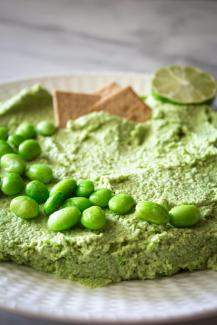The impact of sugar and natural alternatives

Everyone talks about how difficult it is to avoid sugar. But let’s be honest–when sugar cravings set in, the last things we might think of are the long-term effects on our body. Research has established a clear correlation between high-consumption of sugary foods, including beverages, with type-2 diabetes and cardiovascular disease. Consuming sugar is also shown to have an impact in mood, learning and quality of life.
In addition to inflating waistlines, sugar and other sweeteners, including high fructose corn syrup, honey, molasses and maple syrup may contribute to a number of mental health problems such as depression, anxiety, slow learning and memory formation.
When you eat candy and other sugary refined carbohydrates, your gut quickly absorbs the fiber-free sugars causing spikes in your blood sugar, activating the production of insulin. When there is an excessive amount of sugary food consumption, the high insulin level increases storage of belly fat, increasing inflammation, higher risk of depression and a myriad of effects on other systems of your body creating imbalances.
Once activated, the insulin affects your brain, impacting the production of the leptin hormone, also known as the appetite-control hormone. Your brain never gets the “Full” signal. Instead, it thinks you are still hungry. Your pleasure-based reward center is triggered, driving you to consume more sugar and fueling your sugar addiction.
So, the question is, what do we do? Well, healthy eating should not be only about watching quantity but also paying attention to quality. Therefore, to build a healthy eating style and stay within your calorie needs, choose foods and beverages without added sugars.
Added sugars are sugars and syrups that are added to foods or beverages when they are processed or prepared. This does not include natural sugars found in fruits.
Make sure to have more foods like colorful vegetables, fruits, healthy fats including: nuts, seeds, avocados, olives, whole-grains, legumes, animal proteins and seafood. Also, you can limit the consumption of sugary products by:
- Drinking water, unsweetened tea, or beverages sweetened with stevia.
- Choosing fruit as a naturally sweet dessert or sweet snack.
- Choosing packaged foods that have no added sugars such as unsweetened applesauce, or frozen fruit with no added sugar or syrup
- Stevia is a natural sweetener replacement that you can use for baking, coffee or tea.
Instead of sugary snacks, try this tasty, satisfying and healthy alternative!
Edamame Hummus Recipe
A perfect healthy dip or spread! This edamame hummus is very easy to make and perfect for any occasion.
Edamame is a young soybean. It’s important to note that processed soy protein isolate is probably not very healthy, but natural soy in the form of edamame has many benefits since it is high in protein, folate and Vitamin k.
Other ingredients from this recipe such as ginger, known for its anti-inflammatory properties and digestion support, as well as sesame oil, which is a great source of antioxidants, are included to give extra benefits for your body.
Ingredients:
2 cups shelled edamame
2/3 cup chickpeas, drained and rinsed
4 garlic cloves
1/4 cup lemon juice
1 tablespoon of sea salt
1/3 cup extra virgin olive oil
1 teaspoon of toasted sesame oil
1 teaspoon of fresh ginger
Pepper *optional
Instructions:
- Place the edamame, chickpeas, garlic, ginger, salt, and pepper in a food processor.
- Slowly add in the olive oil until smooth and creamy.
- Transfer to a serving dish, add the sesame oil and garnish with some sesame seeds or spices like basil (Optional). Ready to enjoy!
- Store this edamame hummus in a covered container in the refrigerator.
